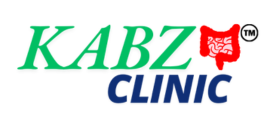Stroke: A condition caused by a disruption of blood flow to the brain.
Stroke: Understanding the Basics

What is Stroke ?
A stroke occurs when blood flow to the brain is interrupted, either due to a blocked artery (ischemic stroke) or a ruptured blood vessel (hemorrhagic stroke). This disruption can lead to brain cell damage or death, resulting in a range of symptoms and potential long-term consequences.
what are the symptoms of Stroke ?
Recognizing the symptoms of a stroke is crucial for prompt medical attention. These symptoms can vary depending on the location of the brain affected and may include:
- Sudden numbness or weakness in the face, arm, or leg, especially on one side of the body
- Sudden confusion or trouble understanding speech
- Sudden trouble seeing in one or both eyes
- Sudden severe headache with no known cause
- Sudden dizziness or loss of balance
who can suffer from Stroke ?
While anyone can experience a stroke, certain factors increase the risk, including:
- Age: The risk of stroke increases with age.
- High blood pressure: This is a major risk factor.
- High cholesterol: High levels of LDL cholesterol can contribute to stroke.
- Smoking: Smoking damages blood vessels and increases the risk of stroke.
- Diabetes: Diabetes can damage blood vessels and increase the risk of stroke.
- Family history of stroke or heart disease
- Atrial fibrillation: This heart rhythm disorder can increase the risk of stroke.
- Obesity
- Physical inactivity
- Excessive alcohol consumption
- Drug use (e.g., cocaine, methamphetamine)
What are the types of Stroke ?
· Ischemic stroke: This is the most common type, occurring when a blood clot blocks blood flow to the brain.
· Hemorrhagic stroke: This occurs when a blood vessel in the brain bursts and bleeds.
Which diagnostic tests are available for Stroke
· CT scan or MRI: These imaging tests can help determine the type of stroke and its location.
· Blood tests: Blood tests can help identify risk factors and rule out other conditions.
· Echocardiogram: This test can assess heart function and identify potential sources of blood clots.
What is the treatment of Stroke ?
· Prompt medical attention is crucial: The sooner a stroke is treated, the better the chances of recovery.
· For ischemic strokes:
- Thrombolytics: Medications can dissolve blood clots and restore blood flow.
- Mechanical thrombectomy: A procedure can remove a blood clot from the brain.
- Antiplatelet medications: These drugs can help prevent blood clots from forming.
· For hemorrhagic strokes:
- Blood pressure control: Medications can help lower blood pressure and reduce bleeding.
- Surgery: In some cases, surgery may be necessary to control bleeding or remove a blood clot.
Which diet I should take, if any ?
· Healthy eating: A diet rich in fruits, vegetables, whole grains, lean protein, and healthy fats can help reduce the risk of stroke and support recovery.
· Limit saturated and trans fats: These fats can raise cholesterol levels.
· Reduce sodium intake: High sodium intake can contribute to high blood pressure.
· Maintain a healthy weight: Obesity can increase the risk of stroke.
Which speciality of the doctor will treat Stroke ?
Neurologist: A neurologist specializes in diagnosing and treating disorders of the nervous system, including stroke.
Is Stroke completely curable ?
While stroke is not always completely curable, early treatment and rehabilitation can significantly improve outcomes. The extent of recovery depends on factors such as the severity of the stroke, the location of the brain damage, and the individual’s overall health.





